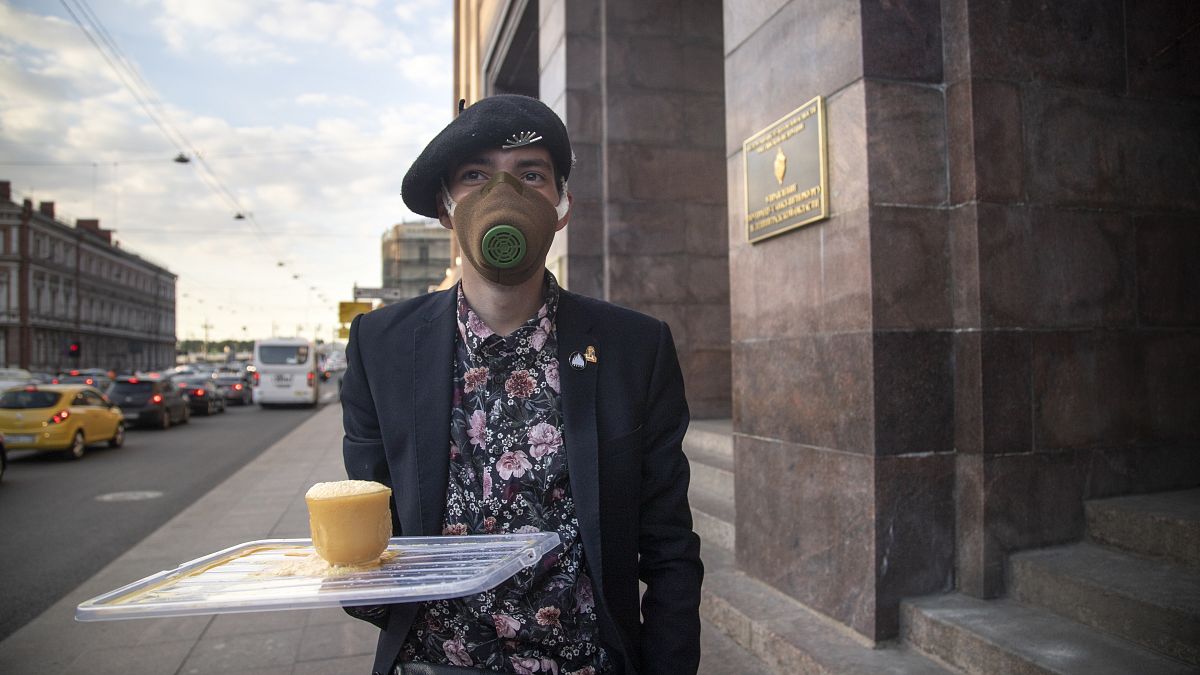Moscow municipal deputy and associate of Alexei Navalny, Konstantin Jankauskas, tells Euronews he refutes the claim that no poison was found in the opposition politician's blood.
Alexei Navalny associate and Moscow city councillor Konstantin Jankauskas has dismissed the claims coming out of Russia that there was no poison found in Navalny's blood. Speaking to Euronews, he said "poison is part of Putin's policy."
Doctors treating Russian opposition leader Alexei Navalny at a hospital in Siberia say he's too ill to be taken out of the country.
Supporters of the Kremlin critic had arranged for a plane to fly him to Germany but the medical team in Omsk says his condition is unstable.
"The problem is the doctor - the head of the hospital - is not just a doctor. He is a politician, a member of Mr Putin’s party, United Russia. And we think this is more about politics than health on Alexei," Jankauskas told Euronews.
Navalny is reportedly in a coma after falling ill during a flight to Moscow. His office says he was poisoned after drinking a cup of tea before boarding the flight. Protesters gathered in several cities across Russia on Thursday - some actively accusing President Putin of being behind the attack.
Doctors at the Omsk hospital said on Friday that they have not yet found any trace of poison in Navalny's system, a claim Jankauskas disputes.
"I honestly think they are lying. I think Putin and his press secretary are lying to [the] Russian people and they should leave Alexei and help transfer him to Europe because otherwise he may die," he says.
"He [Navalny] is [being] kept de facto as a prisoner for several days in order to hide with which poison he was poisoned so that the poison will come from his blood and the investigation won’t find anything.
"So, it’s not about the health of Mr Navalny but it is about the politics, to hide the way he was poisoned."
Navalny has been one of President Putin's staunchest critics for years, having made a name for himself exposing corruption in Russia.
It is also not the first suspected poisoning attack on a Kremlin critic.
In 2019, during a 30-day prison sentence for instigating unauthorised protests, Navalny claimed he had been poisoned with a chemical agent in custody after he being taken ill.
The most notorious poisoning was of former FSB agent and Putin critic Alexander Litvinenko who died after drinking radioactive polonium-laced tea in London in 2006.
"Poison is a method of politics in Russia," says Jankauskas. "Poison is a part of Putin policy, unfortunately."
To listen to the full interview with Konstantin Jankauskas, click on the media player above.
